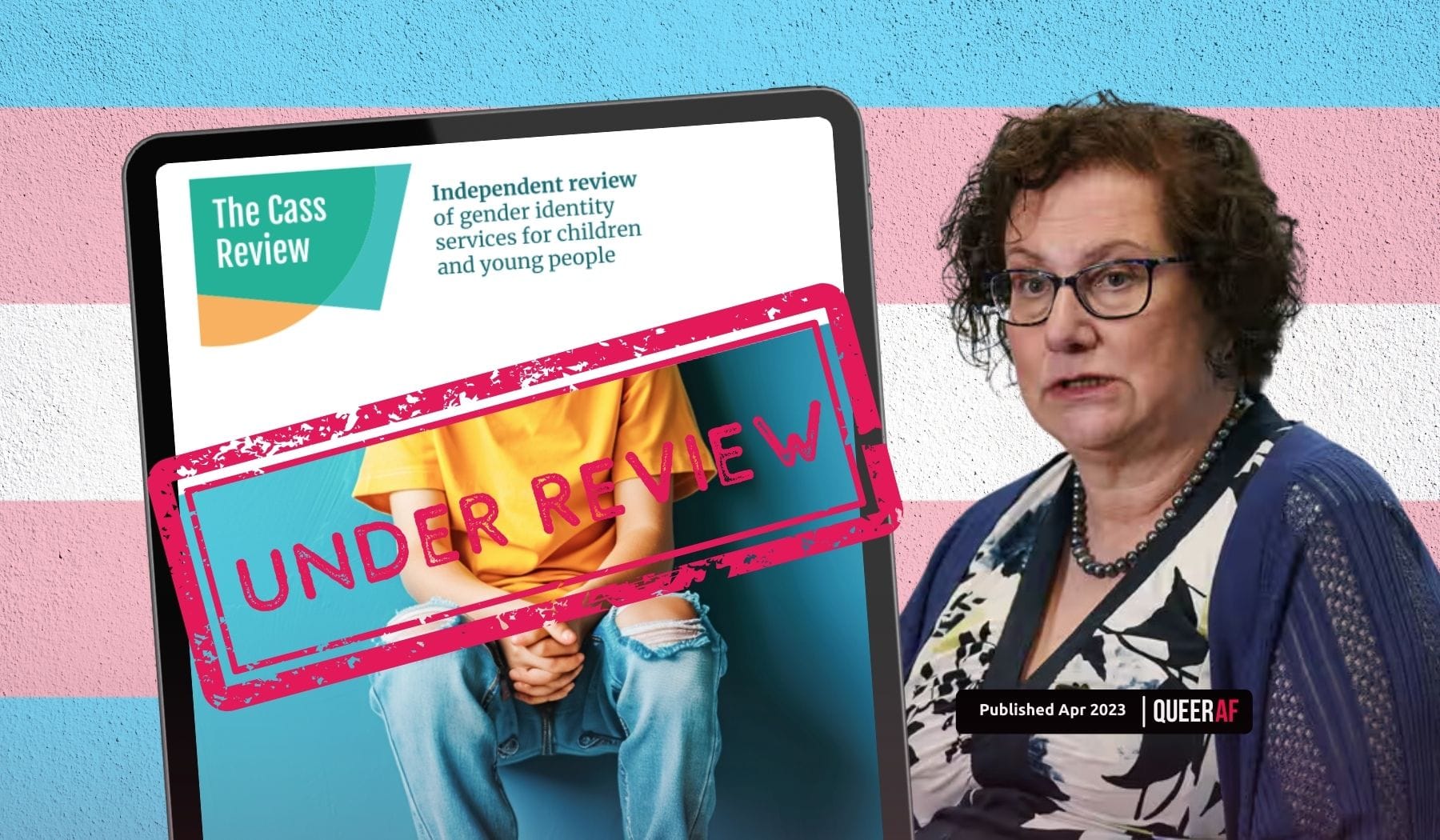TL;DR: The British Medical Association, one of the UK's most respected medical organisations, calling into question the credibility of The Cass Review should not be understated. If it joins the chorus of those condemning the report and leads to it being thrown out it could create a domino effect that puts every other decision made with the report as its basis into question.
The British Medical Association, one of the UK's most respected medical organisations, has called for the temporary ban on puberty blockers for under-18s to be lifted.
Significantly, it's become the latest in a line of international organisations to question The Cass Review, of which a swathe of policy decisions were made on in the last few months of the Conservative government.
The doctors’ union has called for its implementation to be paused so it can undertake an evaluation of the Cass Review - BBC
Why has there been so much criticism of the Cass Review?
The review was led by leading paediatrician Dr Hilary Cass, who was given a peerage in the Parliamentary dissolution list for her work. It recommends a decimation of gender-affirming care options for Trans+ youth, including restricting most care options for people until they are 25.
The Cass Review has links with a number of pro-Conversion Practice groups and individuals, and under its plans would force people to consider 'other reasons' for their gender-dysphoria, something many campaigns claim is tantamount to so-called conversion therapy - QueerAF
The BMA's Council, its top decision-making body, voted in favour of a motion that was critical of the Cass Review. It has now said it is concerned about its impact on transgender healthcare provision because of its "unsubstantiated recommendations".
NHS England has rejected this suggestion, saying it has “full confidence” in the Cass Review and will soon publish a plan to bring in its recommendations. It is likely the BMA's review will take the rest of the year to complete - The Independent
The BMA plans to work with transgender patients to complete the review, something the Cass Review did little of. Prof. Banfield, who will lead the report, said in a statement:
"It is time that we truly listen to this group of important, valued, and unfortunately often victimised people and, together, build a system in which they are finally provided with the care they deserve."
The BMA is the latest in a line of organisations, academics and the vast majority of the LGBTQIA+ sector to condemn the report and, crucially, its methodology. Dr Hilary Cass, who led the review, deemed 98% of studies that showed that gender-affirming care was valuable and "life-saving" by ranking them as low quality.
It did this in most cases by saying the reviews were not good enough because they weren't double-blind. However, to have done this, would have meant young trans people being forced to take an approach against their wishes, an unethical approach that, again, is viewed as a form of conversion therapy.
Other organisations include WPATH, UCU, the European Professional Association for Transgender Health, the British Association of Gender Identity Specialists, the American Academy of Pediatrics and many more.
Analysis: The significance of the BMA's review
The BMA is one of the UK's most respected medical organisations. Whatever the media or politicians try to do to cast doubt on their actions here - what they say matters to the medical community.
If they, too, join this growing list of critiques, the new Labour government will have to take note.
The vast majority of policies and legislation that is rolling back or harming the right to gender-affirming care - including this week's court case that ruled in favour of the puberty blocker ban - use the Cass Review as evidence.
It is the foundation of so much policy. To topple the widely discredited review could create a domino effect that puts every other decision made with it as its basis into question.
The BMA joining the chorus against its implementation, or at this stage, a delay to make sure it was done with a proper methodological approach rather than one influenced by anti-trans campaigners - is vastly significant.

Information is everything. It helps us reach and justify conclusions. But the information ecosystem is failing us.
When the Cass Review was released, news outlets rushed to cover the story, highlighting the report's conclusions without taking time to consider whether the report could be flawed.
In doing so, it amplified and solidified to the wider public the report's key conclusions without balancing it against the evidence it excluded to reach them.
While much of the news media zoned in on that conclusion, trans activists, healthcare experts and the LGBTQIA+ sector combed through it line by line to show it was another official report captured by harmful, prejudiced rhetoric.
Crucially, despite a four-year process, it still failed to find any smoking gun of widespread regret among trans folks who transition. It instead had to rely on a methodology that allowed it to deem any data about how gender-affirming care helps trans people as too low quality. Whether your analysis means that led to it being ignored or excluded is by the by - it was downgraded.
It's not enough to know what the Cass Review says. We need to understand why it reached those conclusions. When we do, we can see it for what it is rather than what it's been reported as.
At QueerAF, we'll always take stock - and deliver accountability journalism with our unique slow news approach, so you understand why.
We think that approach is essential so you have the information you need to fight back against anti-LGBTQIA+ rhetoric.











